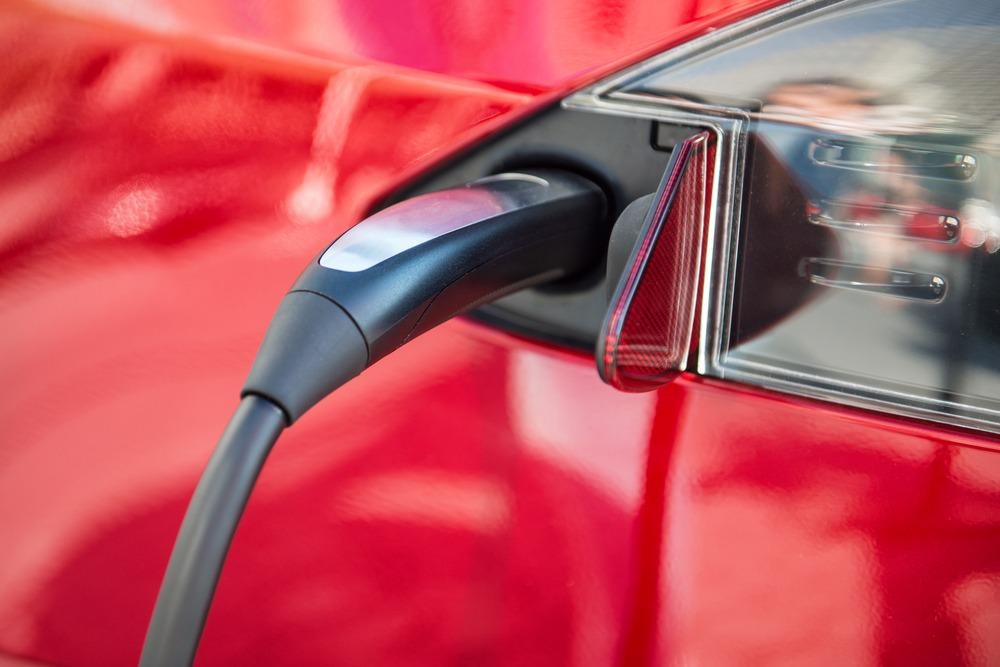
Image Credit: Nick Starichenko/Shutterstock.com
Today, electric and hybrid vehicles are gaining much attention. They have come a long way since their first conception in the early 19th century and the arrival of the first mass-produced hybrid - the Toyota Prius in 1997. Since then, electric and hybrid vehicles have continued to grow in the market, and this rise is forecast to continue, along with lubricant demands, according to numerous reports.
Electric vehicles are becoming more popular than ever across the globe. Electric vehicles currently make up 2% of the worldwide automotive market. However, the balance is not as even as many think. For example, China has more electric vehicles than the rest of the world.
With electric and hybrid vehicles forecast to grow, the demand for lubricants that reduce wear and damage to vehicle electronics is increased. The evolution of hybrid and electric cars has created new needs from lubricants, including improved fluidic performance, as well as electrical and thermal properties.
However, it is challenging to gain high performance and reliability of lubricants while also retaining an electric or hybrid vehicle’s energy efficiency. There is growing research need to develop increasingly advanced lubricants for electric and hybrid vehicles with improved energy efficiency.
A Drive for Change in the Coming Years
Sustainable policies and subsidies support the sustainable automotive industry's growth - with electric cars aiming to replace fossil fuel cars by 2035 in the UK.
According to Energy Insights by McKinsey, all gasoline and diesel vehicles are to be banned by 2040 in France, while all diesel cars and vans will be banned in Athens, Madrid, and Mexico City in 2025.
However, experts claim that electric and hybrid technologies are still at their earliest stages and require further R&D development. This transition includes lubricants for electric and hybrid vehicles, for which there has been a stark rise in publications and patents each year.
Lubricants in the Limelight
Lubricants may not get the most attention in the automotive industry, but they have a vital role to play in electric and hybrid vehicles, with varieties such as bio-lubricants, as well as nanotube-based and mineral oil-based lubricants.
Lubricants play an essential role in the automotive industry as all vehicle parts should be optimal to improve overall performance and efficiency.
In a traditional IC engine, engine oil, transmission fluids, and grease lubricate the engine and protect parts from wear. Electric vehicle lubricants have recently shown a 17% rise in efficiency compared with traditionally used transmission oil.
To advance lubricants further, scientists have focused on gaining higher resistance to copper corrosion and compatibility with polymers used in electric-hybrids' electronics. It has also been essential for them to achieve low viscosity (resistance of a material to flow) and improve the liquids' electric and thermal properties.
An Electric and Thermal Design Challenge
When used in an electric vehicle, thermal and energy efficiencies of the lubricants are vital to consider. If electric and thermal properties are optimal, these liquids can reduce noise, vibration and harshness, which can all damage a vehicle.
A lubricant’s electric properties mitigate electrical damage commonly found in electric vehicles. The thermal properties of a lubricant account for the thermal efficiency of an electric motor. Higher efficiency can be achieved by evaluating optimal levels of thermal conductivity.
Context is important too. To advance lubricants' design, researchers must better understand the electric and magnetic field in the environment and their influence on lubricants in electric vehicles. Problems occur when high electrical conductivity leads to current leakage. If conductivity is too low, there may be static charge build-up and electrical arcing, resulting in the degradation of a lubricant and its performance.
The development of advanced lubricants for electric and hybrid vehicles will continue to focus on improving the electrical properties and thermal conductivity of lubricants so that electrical damage to the vehicles can be reduced and the motor's thermal efficiency can be boosted. Lubricants are expected to be further investigated along with the rise of electric vehicles in the future, leading to many new research studies to come.
Experts believe that future developments could focus on reducing noise, vibration and harshness. Research may also look into an advanced cooling system for keeping the motor cool or installing smart oil monitoring systems that monitor oils using cutting-edge sensors.
References and Further Reading
API (2015). API Base Oil Interchangeability Guidelines for Passenger Car Motor Oils and Diesel Engine Oils (Washington, DC), E1–E28. https://www.api.org/~/media/Files/Certification/Engine-Oil-Diesel/Publications/AnnEREV043019%20rev043019.pdf
Becker, E. P. (2019). Lubrication and electric vehicles. Tribolo. Lubr. Technol. 75:60.
Chen Y. et al (2020). Performance Characteristics of Lubricants in Electric and Hybrid Vehicles: A Review of Current and Future Needs. Frontiers. Available at: https://www.frontiersin.org/articles/10.3389/fmech.2020.571464/full (Accessed on 7 December 2020).
Electric vehicles fluids market analysis and opportunities [Online]. Kline Group. Available at: https://klinegroup.com/reports/electric-vehicles-fluids-market-analysis-and-opportunities/ (Accessed on 7 December 2020).
History of the Toyota Prius [Online]. Toyota. Available at: https://blog.toyota.co.uk/history-toyota-prius (Accessed 6 December 2020).
Impact of electric vehicles on lubricants demand [Online]. McKinsey Energy Insights. https://www.mckinsey.com/
The impact of electric vehicles on lubricants 2029 [Online]. Smithers. Available at: https://www.smithers.com/services/market-reports/materials/the-impact-of-electric-vehicles-on-lubricants-2029 (Accessed on 7 December 2020).
Disclaimer: The views expressed here are those of the author expressed in their private capacity and do not necessarily represent the views of AZoM.com Limited T/A AZoNetwork the owner and operator of this website. This disclaimer forms part of the Terms and conditions of use of this website.